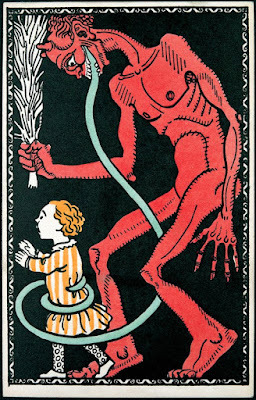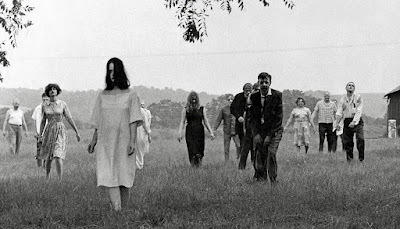Stephen Roney's Blog, page 69
October 15, 2023
There Is No Subcosncsious

Thanks to Freud, the concept of a “subconscious mind” has seeped into our culture. People even hail it as an important scientific discovery, similar to the law of gravity or theory of evolution. But the concept is self-contradictory.
It posits a part of self that is independent of self (“ego”). It posits a part of consciousness of which we are not conscious.
These characteristics are definitive of “other.”
There is no subconscious mind.
The concept is constructed from our experience of memory. Memories emerge into consciousness from some unknown place, where they abide when we are not thinking of them.
But before Freud muddied the waters, we had Plato’s concept of the ideal forms, the Buddhist concept of a “storehouse consciousness,” Coleridge’s “primary imagination.” Put simply, an objectively existing spiritual world. And this is the only coherent explanation.
The fact that memories continue to exist whether or not we or anyone are thinking of them, identifies them as not subjective, part of ourselves, but independent objects of consciousness. This is simply true by definition. Just as the fact that the corner lamppost seems to exist whether or not we are looking at it, demonstrates that it is not a part of us and our consciousness, but an independent object.
If the memories we encounter seem by and large to be entirely personal, that does not make them a part of ourselves. Our sense experiences are also personal: we see only what is around us in space. They may be only a small part of a wider world, just as Africa exists, or Alpha Centauri, although we have never seen it.
But Freud actually finds that memories are not personal; in the house of memory, there seems to be wills operating independent of our own. The subconscious makes us think, say, even do things contrary to our will.
We always knew this too: these wills are the independent spiritual entities identified worldwide as angels, demons, fairies, gods. We know they exist on exactly the same evidence that we know other human or animal spirits exist, that the things we see are not all simply objects: because they are clearly not subject to our will, but follow their own wills.
Just to make the matter clearer, or more confusing if you hold to the Freudian formula, Jung has demonstrated that we are capable of remembering things we have never seen nor heard. Dragons, for example, unicorns, phoenixes, vampires, zombies, and so forth. These are not individual memories, and not individual “imaginings” either; for the same creatures and characters recognizably appear in myths, legends, and folk tales all around the world.
The Freudian “subconscious” is just an alibi, a spooky tale told at bedtime to frighten off further questioning, an attempt to explain away the spiritual aspect of existence, because it contradicts the materialistic dogmas of scientism. But the thesis itself violates all the basic tenets of science as well as philosophy. One of which is that one must go with the simplest explanation to account for the facts.
Which, in this case, is the existence of a spiritual dimension that exists independently of the material.
'Od's Blog: Catholic comments on the passing parade.
October 14, 2023
The Slow Death of Beauty in Our Lives

Friend Xerxes laments that the typical religious service ought to be more of a feast for the senses than it is, and especially ought to consider the sense of touch. Touch, after all, is our largest sense organ, he notes, covering our entire body.
He ought to try Catholicism. The old high mass, at least, was the original multimedia virtual reality event. The bright multicoloured light streaming through stained glass windows; the statues and paintings, the awe of the dome or arched nave; the music and the hymns, the intonations, the responsorial prayer, perhaps more purely aesthetic in their appeal when in Latin, adding the beauty of mystery; the incense, the little bells tinkling and the big bells sounding; the mighty organ swelling; and perhaps not least, everyone in their Sunday best.
Granted that taste and touch were rarely engaged directly; I think because they are the two senses most associated with physicality as opposed to spirituality, in which basic instincts are least able to be sublimated. Touch is, after all, as Xerxes notes, coextensive with the surface of the body, and taste tends to involve assimilating some physical thing. You do not see taste and touch engaged with much in art generally. And when, say, a posh restaurant makes a claim to art, it always feels like an alibi for gluttony or else a con. Never mind touch… treated “artistically” in various back alleys, or under neon lights.
But even they were there, taste and touch, by implication, in the old High Mass. As for taste, there was the fast, and then the special brunch right after mass, and that was part of the full experience. As for touch, there was the self-anointing with holy water, and sometimes a sprinkling by the priest walking up and down the aisles. And kneeling was a special touch experience one did not get outside church.
But these in particular tended to be chastisements of these two senses as much as celebrations of them. The point was to sublimate and spiritualize the senses, as art, not to indulge them.
More broadly, being a Catholic is or is supposed to be living a life as a work of art. One crafted oneself into something better; a conquest of nature by art.
There were many beautiful signposts along the way. Not just the mass on Sundays, but Christmas, and Easter, and Lent, and Mardi Gras and Ash Wednesday and (yes, it is a Catholic festival) Hallowe’en, to mark the seasons.
And then, to mark the seasons of your life, there were sacraments like First Communion. It marks the age of reason, age seven, before which a child does not understand the concept of sin, does not have a fully formed conscience, and so cannot properly receive communion. I still remember fondly the day of my First Communion; all the little girls posing on the steps of the church, wearing their white dresses and with lace doilies bobby-pinned in their hair. And me wearing real button-up trousers and a jacket and clip-on tie. It is a great event in the life of a child.
As I remember fondly those of my two children.
And I have on my desk before me the carefully preserved little Catechism my younger brother Gerry, now gone, received as a gift for his First Communion.
Such ceremonies consecrate a life to beauty: confirmation, the doorway you stride through into adulthood; the joy of matrimony; watching your children pass though these doorways in their turn; then extreme unction, and the more solemn beauty of the funeral service.
These leave all the memories that make an ordinary life meaningful. One’s memories are always of family, and one’s family memories are always of these holy events.
We are losing this; we have let it slip away. The church itself is losing this. The current mass does away with much, most, of what was most beautiful.
To what possible purpose?
'Od's Blog: Catholic comments on the passing parade.
October 13, 2023
Thoughts on Israel and Hamas
I agree wholeheartedly with Andrew Klavan in this interview: all Jew hatred is God hatred. Jews are hated because they represent the moral law, the demand to make something better of ourselves. Everything else is alibi.
Michael Knowles is here as the voice of Catholicism, but I strongly agree with Klavan and not him in understanding Christianity as a branch emerging from the Jewish tree, not something that supersedes Judaism. Any more than the covenant with Noah was cancelled by the covenant with Abraham, or the covenant with Abraham by the covenant with Moses. God does not renege on his promises. This point is made repeatedly in the New Testament.
“Do not think that I have come to abolish the Law or the Prophets; I have not come to abolish them but to fulfill them. For truly I tell you, until heaven and earth disappear, not the smallest letter, not the least stroke of a pen, will by any means disappear from the Law until everything is accomplished.”
Klavan also points out that Israelis are not colonizers. This is another example of the attempted mind control through the illegitimate use of language I posted about yesterday. A colony by definition lacks self-government, and is controlled by some parent state. Israel has no parent state.
Should pro-Hamas, anti-Israel protests be made illegal in Canada, as in France? Technically, they already are illegal, because they violate the “Hate Laws.” But inevitably, such laws are always used selectively, to suppress groups out of favour. They are of no help in the face of real hate.
I understand why such demonstrations make Jewish Canadians feel unsafe. I still oppose banning them; this is where free speech is put to the test. Were I a Jew, I would feel safer knowing where the threat is coming from. The Devil’s favourite con is convincing us he does not exist: then he gets to act with impunity.
Should the US bomb Iran over this? As things stand, the average Iranian is pro-American. Getting bombed would rally many behind the corrupt and hated government. And taking out Iran’s oil facilities is not a great idea either. We’re already boycotting Russian oil, and refusing to allow fracking and pipelines at home. Why not just bomb Washington and London and get it over with?
Should Israel, as is being suggested in some quarters, just expel everyone from Gaza? Not possible. No Arab country will take them in, because that would be abetting Israel’s ethnic cleansing. No Western democracy should, because that would mean endangering their existing Jewish population.
The IDF can huff and puff, but there is no military solution here. I think of this passage from Heart of Darkness:
In the empty immensity of earth, sky, and water, there she was, incomprehensible, firing into a continent. Pop, would go one of the six-inch guns; a small flame would dart and vanish, a little white smoke would disappear, a tiny projectile would give a feeble screech—and nothing happened. Nothing could happen. There was a touch of insanity in the proceeding, a sense of lugubrious drollery in the sight; and it was not dissipated by somebody on board assuring me earnestly there was a camp of natives—he called them enemies!—hidden out of sight somewhere.
You cannot subdue a hostile population with weapons, if they are not prepared to accept defeat.
'Od's Blog: Catholic comments on the passing parade.
October 12, 2023
The Israeli Situation Expressed Visually
Controlled Speech
 You must all henceforth refer to me in the plural, and as the Queen of Portugal
You must all henceforth refer to me in the plural, and as the Queen of PortugalDisturbingly, I recently had to fill out a form that had a field for my preferred pronouns”—and it was a required field. One more in an ever-growing list of restrictions on freedom of speech and freedom of thought. Now nobody is allowed to hold the self-evidently true position that pronouns are an element of English grammar, not subject to personal choice. Any more than you can just decide to require others to stop using the terminal “s” on verbs in the simple present, third person singular. And everyone else must fall in line.
This is sometimes claimed to be simply a matter of being polite, or of considering the feeling of the person referred to. But the pronouns required are always in the third person. The person spoken of is normatively not present; otherwise you would address them directly. So this cannot apply. The point is purely power and control.
There are too many other multiplying examples of enforced speech used to control thought: all the invented “phobia” terms, used to preemptively imply that anyone who raises an objection to homosexuality, Islam, transvestitism, or whatever, is irrational, if not insane. The terms “native,” “aboriginal” or “indigenous” applied to North American Indians and other cultures: no people on Earth is aboriginal or indigenous, so far as we can tell. And all of use are native to the land where we were born. “First Nations,” similarly, requires us to pretend that some band of a couple of thousand people is a “nation.” It violates the dictionary and the anthropological definition. The proper term for what we are referring to here is actually “primitive”; or “tribal,” or “Stone Age.”
A similar case of mind control is the use of the word “gender” beyond the field of grammar and not as a mere synonym for sex. There is no such thing as gender distinct from these two uses; the word is invented and enforced to force us all to think or pretend there is. Similarly, we are forced to call men women and women men, on command.
And that is the key element of all these restrictions: the thing we are forced to say and to aver is always something obviously false. The truth does not need to be imposed; only lies do.
Which is one reason why we must recover freedom of speech.
'Od's Blog: Catholic comments on the passing parade.
October 11, 2023
About Those Missing and Murdered Indigenous Women and Girls ...
The crazy thing is that this was not obvious to everyone all along.
Ending the Eternal Pogrom
 Hitting a stone wall.
Hitting a stone wall.I have a lot of Jewish friends. I also have a lot of Muslim friends. The horrors Israeli Jews have suffered in the last few days depress me beyond measure.
Putting aside anger, and even right and wrong, how do we ever end this? It has been going on since 1948. No matter what Israel does, the Palestinian Arabs and many Muslim powers surrounding Israel will not be reconciled to its existence. The transplant has failed.
The supposed reason for Israel was so that the Jews could avoid pogrom and persecution; at last they could escape historic European persecution and defend themselves. But this has turned out to be a false hope. The last few days have been as bad as any old Russian pogrom.
Israel is a relatively small number of people on a small patch of land surrounded by a vastly larger number of hostile neighbours. Who are gradually developing technologically. For sheerly demographic reasons, sooner or later, Israel is going down, going down in blood, and in the meantime there will be massacre after massacre after massacre of the Jews.
Israel is a mistake.
In the Torah, the Jews are called to be a leaven and a light unto the nations. It seems obvious this was God’s desire. The return to Jerusalem and the rebuilding of the temple is supposed to happen only in the last days. To have tried to force the issue as a purely secular matter seems presumptuous. Presumptuous as the Tower of Babel.
Of course, the recreation of Israel was also never fair to the Arabs. Why was it up to them to surrender some land? Why did they have to yield sovereignty to the Jews, and not, say, Germany or Russia or Poland, whose borders were fungible in 1948? Why not the US, Canada, or Australia, with large sparsely populated areas?
To be a light or leaven unto the nations, the Jews must disperse to all lands; as the leaven must be worked though the bread, and the light must not be hidden in a bushel. Any land not of idiots ought to be desperate to have them. There is a world depopulation crisis; developed countries calculate that they need immigrants in larger numbers. Why not this group of naturally adaptable, mobile immigrants, who contribute more to the culture wherever they go than any other group ever?
Consider English Canadian culture without Leonard Cohen, Irving Layton, A.M. Klein, Ed and David Mirvish, Wayne and Schuster, Sharon, Lois, and Bram, William Shatner, Jack Granatstein, Frank Gehry, Moshe Safdie, Avie Bennett, Mordecai Richler, the Bronfmans, Mel Hurtig, Jonathan and Barbara Kay, Ezra Levant, Moses Znaimer, Heather Reisman, Eugene Levy, Howie Mandel, Rick Moranis, Robbie Robertson … there would be nothing. That’s what leaven is like.
The best thing Canada could do in the current crisis is to open unrestricted immediate citizenship to any Jew coming from Israel. Best for the Jews, who would surely face less persecution in Canada than in the Middle East. What the Arabs would prefer, not want to live with the Jews. Best for Canada. Best for the world. God’s stated desire.
Other countries should do likewise.
'Od's Blog: Catholic comments on the passing parade.
October 10, 2023
The Vineyard and the Jews

Hear ye another parable. There was a man, a householder, who planted a vineyard, and made a hedge round about it, and dug in it a press, and built a tower, and let it out to husbandmen; and went into a strange country.
34 And when the time of the fruits drew nigh, he sent his servants to the husbandmen that they might receive the fruits thereof.
35 And the husbandmen laying hands on his servants, beat one, and killed another, and stoned another.
36 Again he sent other servants more than the former; and they did to them in like manner.
37 And last of all he sent to them his son, saying: They will reverence my son.
38 But the husbandmen seeing the son, said among themselves: This is the heir: come, let us kill him, and we shall have his inheritance.
39 And taking him, they cast him forth out of the vineyard, and killed him.
40 When therefore the lord of the vineyard shall come, what will he do to those husbandmen?
41 They say to him: He will bring those evil men to an evil end; and will let out his vineyard to other husbandmen, that shall render him the fruit in due season.
42 Jesus saith to them: Have you never read in the Scriptures: The stone which the builders rejected, the same is become the head of the corner? By the Lord this has been done; and it is wonderful in our eyes.
43 Therefore I say to you, that the kingdom of God shall be taken from you, and shall be given to a nation yielding the fruits thereof.
This passage, the gospel reading at last Sunday’s mass, is commonly taken to mean the the covenant with the Jews has been replaced by the Christian covenant; that Jesus is rejecting Judaism. Last Sunday’s sermons might have suggested as much.
I don’t think this is a plausible reading. To begin with, Jesus quotes several lines from Psalm 118:
“The stone the builders rejected
has become the cornerstone;
the LORD has done this,
and it is marvelous in our sight.”
It therefore seems significant that this Psalm begins with
“Give thanks to the Lord, for he is good;
his love endures forever.
2 Let Israel say:
‘His love endures forever.’
3 Let the house of Aaron say:
‘His love endures forever.’
4 Let those who fear the Lord say:
‘His love endures forever.‘”
A repeated promise that God will never abandon the Jews—or the priests, the house of Aaron.
Moreover, it follows that, if the stone that the builders rejected has become the corner stone, the temple and the builders of the temple—the Jews—must still be in the picture. It must be them raising the stone to its position.
Moreover, Jesus is, after all, quoting from the Hebrew scriptures as authoritative.
Accordingly, it is only those, gentile or Jew, who reject and do not repent of their rejection of this stone who shall lose the kingdom of heaven:
“Anyone who falls on this stone will be broken to pieces; anyone on whom it falls will be crushed.”
Anyone.
What is the stone? Not Jesus. For in the parable, the rejection is not only of the son of the vineyard owner, but also of the servants and messengers—the prophets. All prophets.
The stone might better represent the stone tablets of Moses on which the law was inscribed. It is the law and lawfulness, divine justice, that is rejected.
Those who will lose the kingdom of heaven are any, Jew, Christian, Muslim, or none of the above, who reject God’s rightful dues, however he sends for it: through Moses, through the Hebrew prophets, through the prophet Muhammed, through Krishna, or through the gospel and the Christ.
'Od's Blog: Catholic comments on the passing parade.
October 9, 2023
Queen's Has Always Been a Bit Off
'Od's Blog: Catholic comments on the passing parade.
The Zombie Apocalypse Is Real
 In a park near you
In a park near you
I have long been intrigued by the strange attractiveness of the zombie meme—to me as much as anyone. It seems clear to me that it must reflect a common life experience. Indeed, I have long been aware that it reflects my own. Many people these days seem zombies, NPCs.
More recently, I have seen it confirmed that zombies have always been with us. They are in the Bible.
Matthew 8: 21-22
Another disciple said to him, “Lord, first let me go and bury my father.”
But Jesus told him, “Follow me, and let the dead bury their own dead.”
Most people, the gospel is saying, are zombies. They move about, they die again in some sense, so as to occupy graves, but they are actually dead; dead in spirit, dead within.
And that to me seems exactly right. Many people seem to live lives no more significant than those of cockroaches: taking advantage of whatever the day offers, grabbing whatever is within reach, eating, mating, dying. They operate on instinct; the instinct for sex, the drive for power, or money, or prestige. All of which counts for nothing once you’re dead, and does nothing for future generations. They drink alcohol or take other drugs or seek purely escapist entertainment to dull whatever higher faculties they have. And then they die, and their life never mattered. Maybe to a small circle of friends and relatives; but then, if these friends and relatives in turn are doing nothing but operate on instinct, that only delays oblivion and meaninglessness for another generation or so.
This seems actually more true of highly “successful” people in most walks of life than of anyone else. They have generally wasted more, wasted more God-given potential, if they have accomplished nothing of eternal significance. It was my overwhelming sense at the death of Ruth Bader Ginsberg: that it was a wasted life.
So what’s the alternative?
According to this brief passage in the gospel, the alternative is to follow Jesus, and with full commitment—to drop everything else.
What does it mean to follow Jesus?
It is not enough to mouth the name. “Not everyone who says to Me, ‘Lord, Lord,’ shall enter the kingdom of heaven, but he who does the will of My Father in heaven.”
It is not enough just to be baptized. One has to be born again: “Very truly I tell you, no one can enter the kingdom of God unless they are born of water and the Spirit.”
Baptism is the water. But as the child is not yet fully self-aware, the rebirth of the spirit cannot yet occur. That must wait until past the age of reason.
This is the significance of the sacrament of confirmation in the Catholic tradition; in evangelical Protestantism, it is the experience they call “being born again.” But it does not happen automatically when the bishop anoints you with oil and slaps your cheek: the spirit, the will, must be engaged.
It is a moral commitment each of us makes, usually in early or mid-adolescence, of our lives either to gross self-interest or to the truth and the good as we perceive it. Christians call the truth and the good “Jesus.”
“I am the way, the truth, and the light. No one comes to the father except through me.”
Either one serves one’s instincts to sex, power, and prestige, or one serves truth, justice, and beauty. This is as true for pagans as for Christians; it has always and everywhere been true. But there is a second step for Christians: it is not just a commitment to truth in the abstract. That is not yet enough. We must see truth in personal terms, as a person and an independent will, and have a personal relationship with it—with him. Because, as Blake explained, no human can conceive of anything greater than a perfected human. Therefore, so long as our conception of truth, beauty, and justice does not have a personality and a human face, we do not sufficiently value or understand it. It remains, to us, mere abstraction, and subject to self-interested rationalization.
We must, in a sentence, love it: with our whole heart and mind. Blake again:
“Picture a cloud as holy: one cannot love it. But picture a holy man within the cloud: love springs up.”
We must have a personal relationship with Truth and Justice and Beauty, we must love him with an all-consuming love. We must speak to him as a person, at our rising and our lying down, with gratitude when our instincts are satisfied, and at random moments during the day. As we might text a lover.
Is it a terrible burden to do so?
Is it a terrible burden to be in love? In a sense, it is; yet we all crave it.
What proportion of mankind does this? What proportion has ever done this? It is surely a minority. Perhaps a small minority.
For the rest, zombies.
'Od's Blog: Catholic comments on the passing parade.




